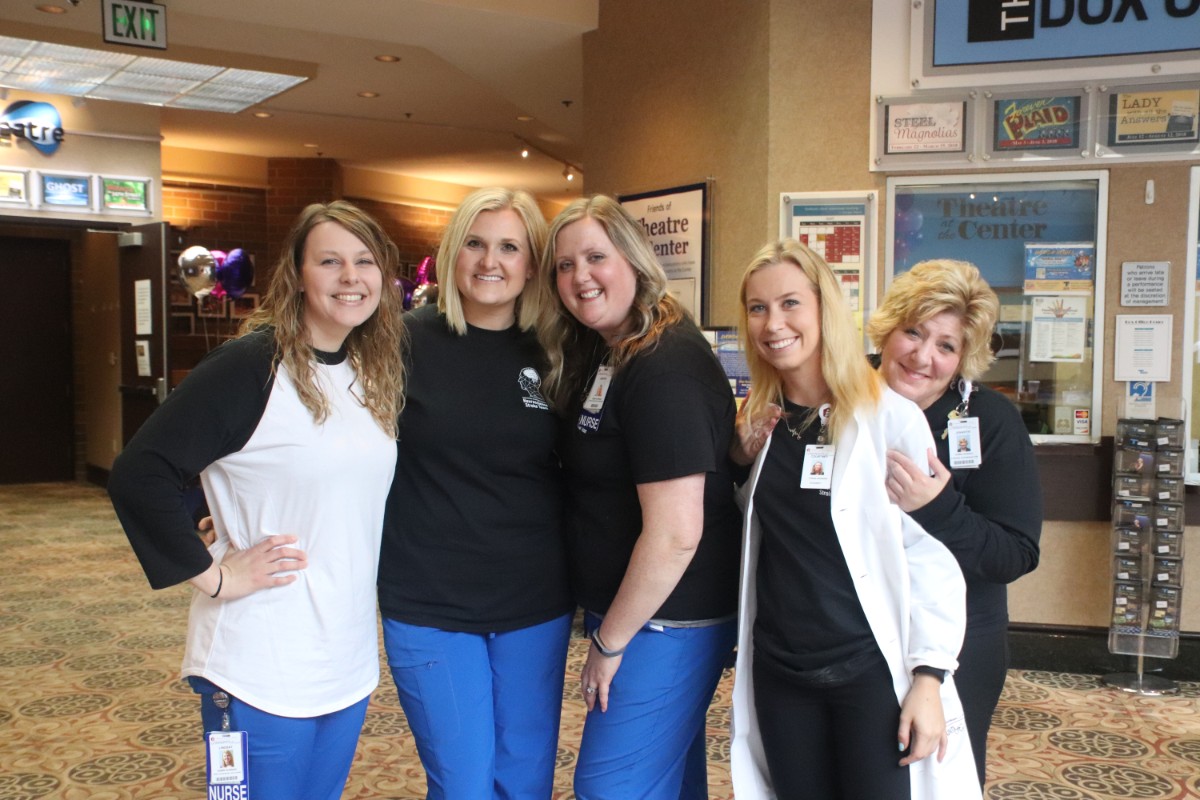Attendees at the Stroke and Diabetes Awareness Fair, hosted by Community Hospital and St. Catherine Hospital, learned about the different ways that individuals can take charge of their health. The event boasted a full house of vendors and informational booths, as well as lectures on the advances made to treat stroke and diabetes.
“Community Hospital is a certified Primary Stroke Center by The Joint Commission,” shares Jill Conner, Administrative Director of Neuroscience, Cerebrovascular, and Structural Heart Services at Community Hospital. “When we received certification almost over 10 years ago now, we had a very small-scale event as we saw the need in the community. People responded positively to the education and screenings so every year the event has gotten bigger and bigger.”
Participants had the option for free screenings that could check their blood pressure, pulmonary function, balance testing, non-fasting cholesterol, and also receive a stroke-risk analysis.
“We’ve been able to offer more to the community from education to lifestyle management to labs,” Conner explained. “Members of the community, especially this community, have a desire for education. They want to learn; they want to be empowered.”
Those who partook in the booths could also participate in a hands-on CPR demonstration after watching an engaging and educational video.
“It’s important for citizens to learn family and friends’ CPR because when somebody goes down, nine times out of ten when I show up at a scene and nobody’s doing CPR, basically the patient’s survival rate is zero,” shares Munster firefighter and paramedic Jose Serrano. “People learning CPR will give them more of a chance of surviving a cardiac arrest event.”
Throughout the duration of the fair, lecturing doctors offered education over several topics, including how to assess stroke risk and how to recognize one occurring.
“The simple way to remember signs of stroke is FAST,” shares Dr. Tareq Kass-Hout, Interventional Neurologist at Community Hospital and Rush University. “The face is not symmetrical, and the smile doesn’t look right. If the arm is weak, that’s also a sign of stroke. If speech is not correct or it’s gibberish, or you can’t produce words, that tells you that it’s time to call 911.”
Kass-Hout also expressed his enthusiasm for the advances the medical community has made in the treatment and prevention of the different types of stroke.
Dr. Demtrius Lopes, Surgical Director of the Neuroendovascular Program at Community Hospital, spoke on the high incidence of stroke in Northwest Indiana, as this area offers a "perfect storm" of prevalent medical conditions among its residents that increase their risk of stroke.
"There is a high incidence of atrial fibrillation, diabetes, heart disease and obesity which all contribute to stroke," said Lopes. "Add to that, the number of smokers in the area and you have what we consider a high-stroke region."
Learn more about the cutting-edge techniques the hospitals of Community Healthcare System offer.


